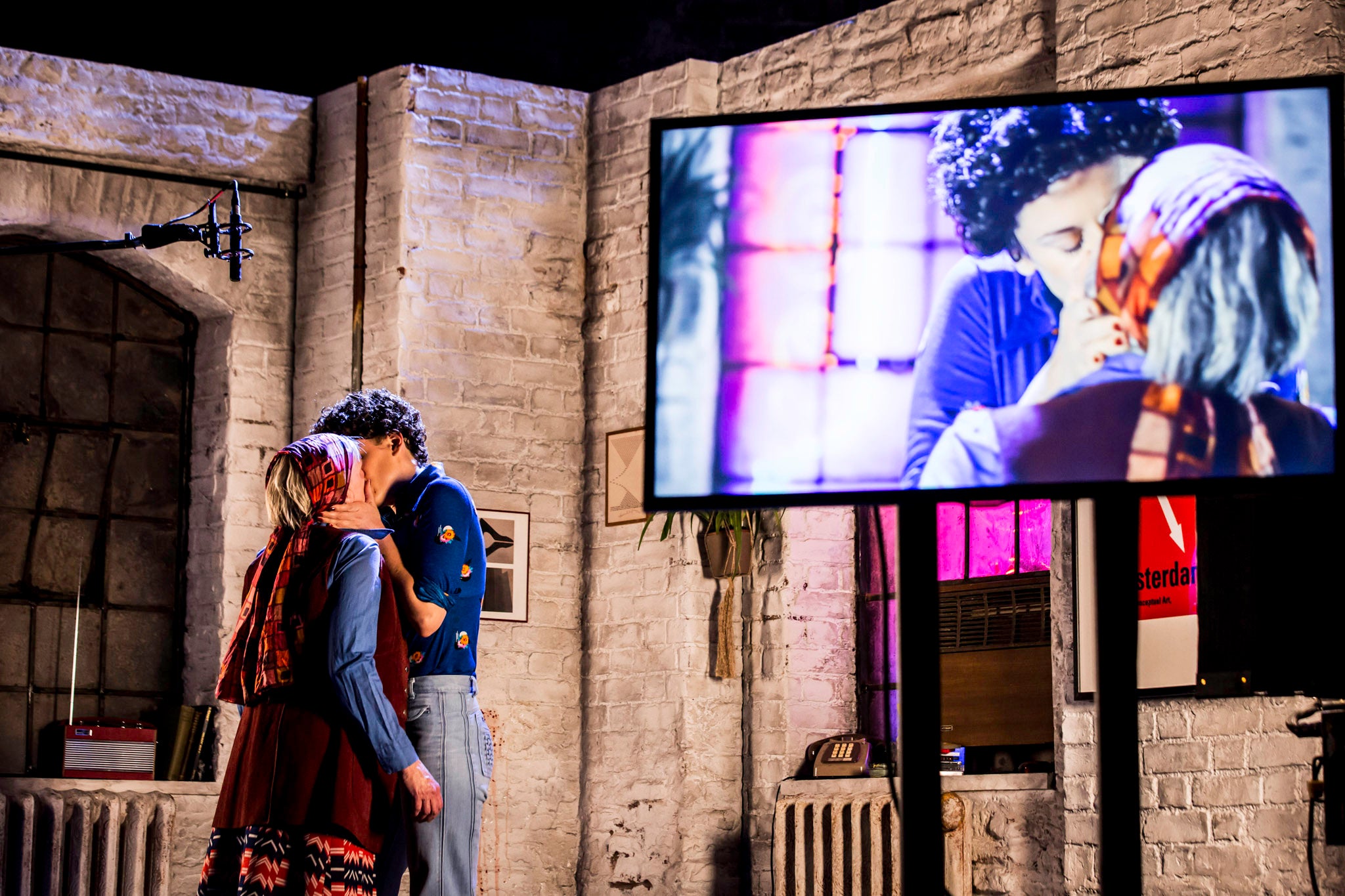Adler & Gibb, Royal Court, review: Memorable and rewarding

Tim Crouch's work has long been animated by his frustrated sense that theatre lags behind visual art in its over-reliance on the realistic and the figurative and in its limited range of demands on an audience.
One of his plays, ENGLAND (2007), was specifically written to be performed in art galleries around the world and, as with many of his pieces, it approached the question of what we value partly through a consideration of the art world.
Now Crouch's distinctive, seriously mischievous fusing of formal experiment and ethical investigation is taken a stage further in Adler & Gibb, his new piece at the Royal Court which plays pointed games with the rules of representation while skewering the monstrous presumption of wanting to invade and appropriate another person's reality.
The proceedings (directed by the author with Karl James & Andy Smith) begin in a mode of calculatedly cryptic abstraction. At the lectern, a gushy American student (Rachel Redford) punctuates the show with her 2004 presentation on Janet Adler, a New York conceptual artist who, along with her partner and lover Margaret Gibb, produced work that mocked the notion of permanence and commodification (for example, publicly eating a celebrated portrait of the art critic Clement Greenberg). The pair eventually withdrew from the art world to live in rural isolation until Janet's mysterious death in 2003.
Who, though, are the couple standing in their underwear repeating each others' lines with no adopted accents or gestures while facing outwards to the audience in an ostentatiously non-naturalistic fashion? It takes you a little while to twig that this is a movie actress and her coach and that the actress Louise (excellent Denise Gough) is the student ten years on, still as obsessed with Adler and now about to star in a biopic about her idol. As part of her “process” and in the hope of unearthing some buried diaries, she has come to the tumbledown retreat and violated its privacy only to meet with the wrath of Amelda Brown's eloquently affronted Gibb.
While issues of authenticity and legacy are acrimoniously thrashed out, there's the charming gambit of having children, unaffectedly themselves, stage-manage the show, handing the actors preposterous plastic props or performing animal roles, such as the dog that Louise clobbers to death with an inflatable baseball bat. To her hysterical amazement, she discovers that her was the very canine that Adler and Gibb had offered as a work of art to the permanent collection of the Whitney, provided the gallery could guarantee its protection. I should issue a spoiler alert at this point – though as Crouch has been open about it, I feel it's fair to say that these conceptual artists are his invention and that the elaborate witty detail of their spoofed biographies provides a lot of sly fun. But an evening that starts off with the air of a studied prank becomes emotionally piercing as we learn the truth of Adler's end and, in a manner that I will not spoil, form continues to mirror the theme of overweening appropriation. Not an easy show, but a memorable and rewarding one.
To 5 July; 020 7565 5000
Join our commenting forum
Join thought-provoking conversations, follow other Independent readers and see their replies
0Comments